
Practical Tips for Disclosing Your Autism
How to approach the “I’m Autistic” conversation so it goes better, and coping when it doesn’t.
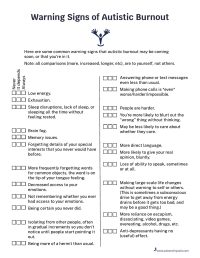
A checklist of common warning signs that autistic burnout is coming soon, or that you’re already in it.
Please show you’re not a spam bot.
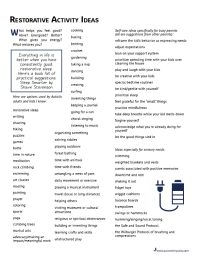
Rest is more than sleeping. Anything that gives you energy counts as restorative.
Here are more than 80 ideas of activities from real Autistics, to feel good, so you have the energy to cope when things happen that are more challenging to deal with.
Please show you’re not a spam bot.
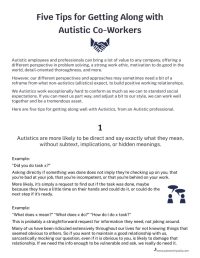
Some tips about Autistic style communication that can help work relationships go smoother.
Please show you’re not a spam bot.
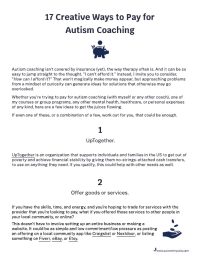
Autism coaching isn’t covered by insurance, but that doesn’t need to mean it’s out of reach. Here are 17 ideas starters of how you might afford it. If even one of these, or a combination of a few, work out for you, that could be enough.
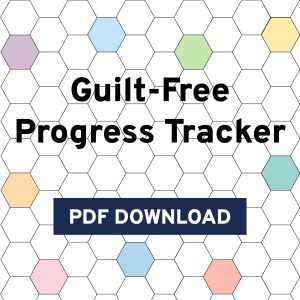
Like star charts, or habit trackers, but without all of the blank dates to haunt you when you didn’t do something, just an ever-filling chart of what you did do.
Color in a hexagon each time you make progress toward your personal goals. Includes a full page and a half page chart.
Please show you’re not a spam bot.

If you are frequently exhausted, having trouble functioning, melting down or shutting down, have low energy, or are feeling tired or sick, get headaches, or avoid daily tasks, and you haven’t been able to explain why, check out these common (and commonly overlooked) sources of stress in everyday modern life.
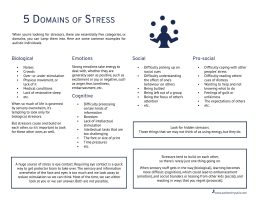
When so much of life is governed by sensory overwhelm, it’s tempting to look only for biological stressors.
But stressors cause and build on each other, so it’s important to look for these other ones as well.
Here’s five areas, or domains, in which we all experience stress, and several examples to help you generate ideas.
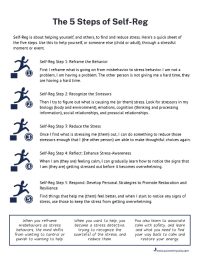
A quick reminder of the The 5 Steps of Self-Reg. Use this to help yourself, or someone else (child or adult), through a stressful moment or event.
Post it on the fridge, by your desk, or wherever you could use a gentle reminder.
Please show you’re not a spam bot.

How to approach the “I’m Autistic” conversation so it goes better, and coping when it doesn’t.
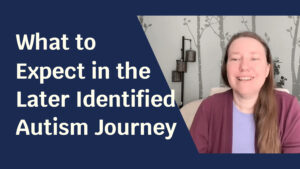
The 5 stages people predictably go through after figuring out as an adult that you’re autistic.
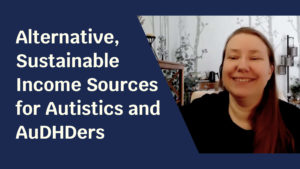
How to generate ideas for work that you actually like, tips for making it work with your AuDHD brain, and be sustainable. Plus practical tips especially for self-employment.
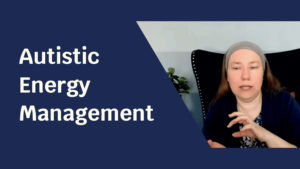
How do you make positive changes in your life when you have no energy left? In this workshop recording, I share my philosophy of the situation and lots of practical tips.

If you want to unmask, how do you do that safely? And how can you tell when it’s safe to unmask, and to what extent? Here are some principles to tweak things in your favor.
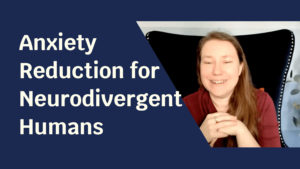
Here’s one of the most helpful reframes I’ve ever come across when dealing with my own anxiety, or helping my clients through theirs.
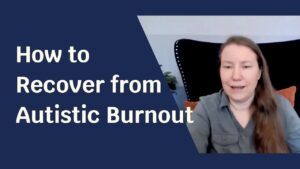
Here’s an overview of how to get out of Autistic burnout permanently, so you can get your life back — an autism-friendly life you are excited to live.
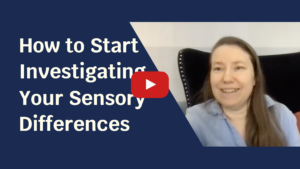
Do you want to get better at figuring out your sensory differences, to understand your own body better? Here’s a few ideas on how to get started.
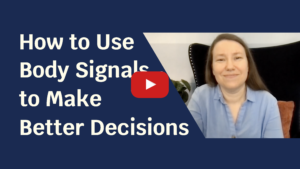
If decision making is hard for you, here’s a technique to use body sensations as another source of information for decision making.
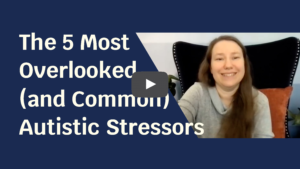
Here are five things that are so common in our modern lifestyle, that we often don’t have a chance to experience life without them, so we don’t see how much they affect us.